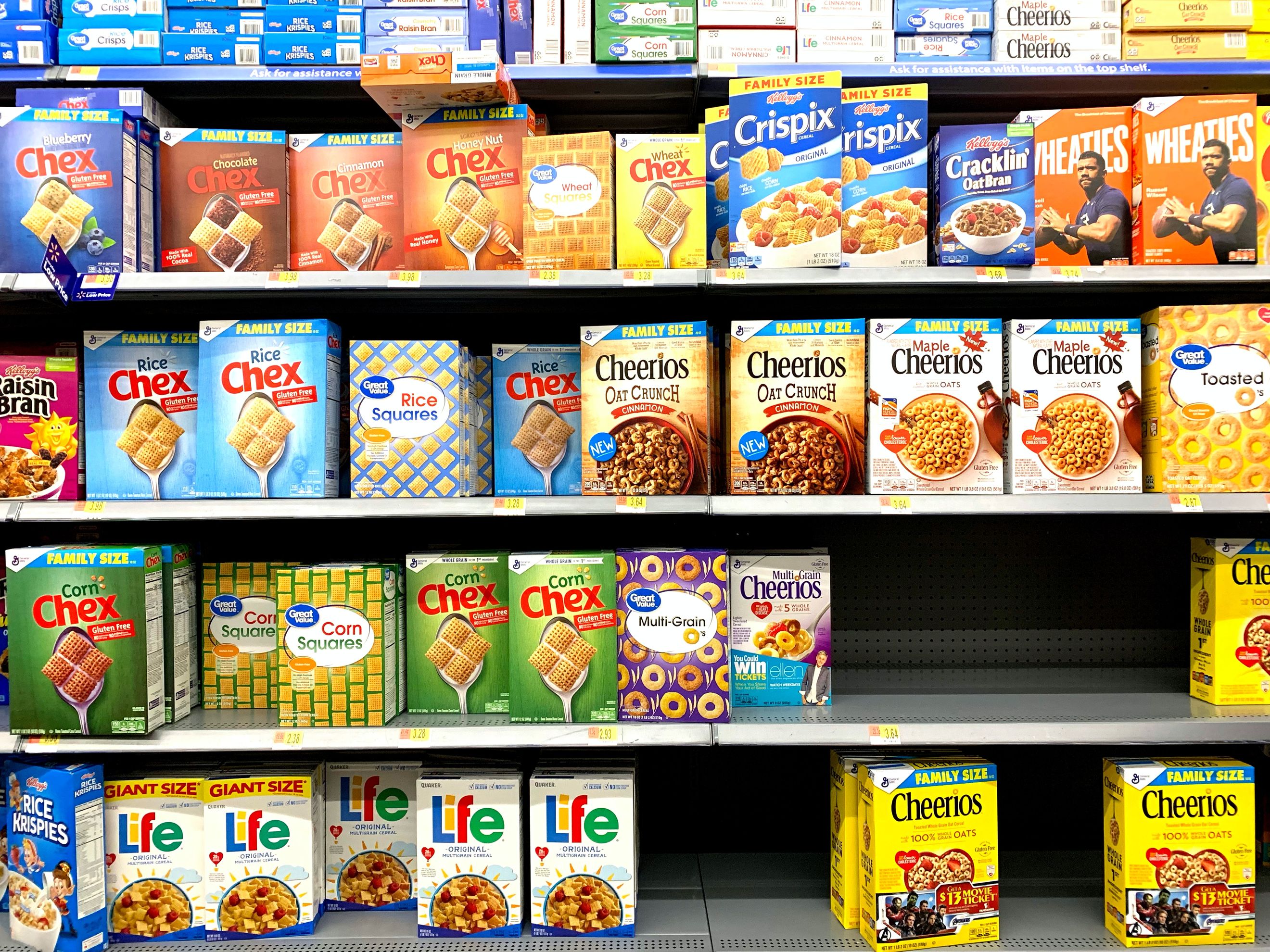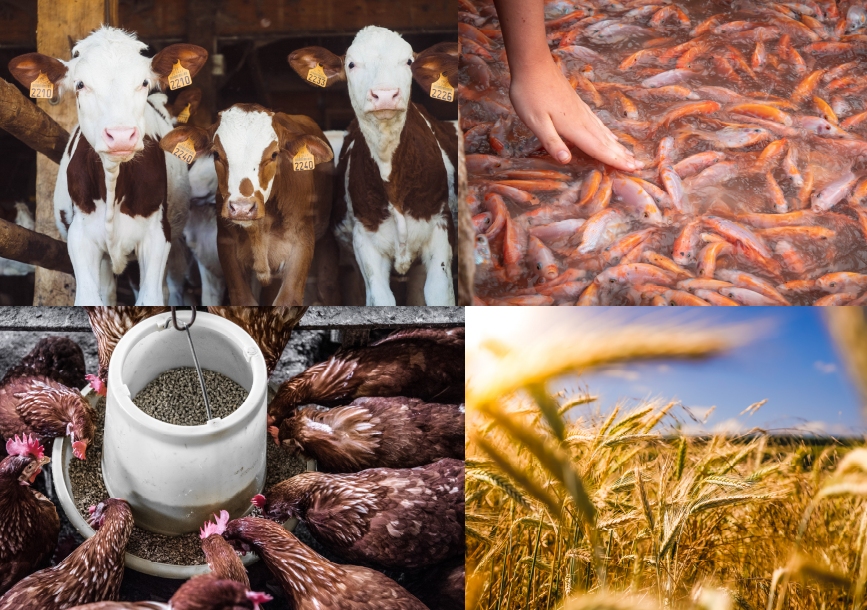
Processed foods - from cost advantage to competitive disadvantage
High Fat, salt or sugar content ultra-processed foods have been a major contributor to the growing obesity pandemic. Calls are growing to shift to healthier options.
Summary: The growing calls to incentivise the shift from high fat, salt or sugar foods and drinks to healthier options has been joined by Danone from the food industry itself. Ultra-processed foods manufacturing born out of a desire to produce cheaply and at high volumes and driven by a desire for convenience has dominated the industry. With the link to obesity and associated conditions, increased awareness and demand for more sustainable options from consumers could accelerate that shift.
Why this is important: The impact of obesity / overweight on the world could hit 3% of global GDP annually in the next 10-12 years or $4.3 trillion. The health foods market could reach $1 trillion over the next 5-8 years. As an investor or industry participant, understanding the shift to healthier options and particularly the velocity of that shift will be key.
The big theme: There are real concerns about our ability to feed the world, while at the same time trying to reduce the impacts on our natural world. Agriculture and the food and beverage industries sit at the intersection of a number of UN Sustainable Development Goals. The goals are either directly relevant (for example, goal 2: zero hunger) or have a causal relationship (for example, education improving with better nutrition and less pollution). Reforming these industries is going to require massive social and economic change and disruption to production methods, to supply chains and to employment.

The details
Summary of a story published in The Observer:
The President of Danone UK & Ireland, James Mayer, has called on the UK government to tax products that are high in fat, sugar or salt (HFSS) to incentivise the UK food industry to speed up the pivot towards healthier products. This is the first time that a major food company has called for action in this way to tackle rising obesity rates in the country. Currently most groceries are exempt from Value Added Tax (VAT) with the exception of products including soft drinks, ice cream and certain biscuits. Mayer is suggesting VAT be imposed on HFSS products too.
The Observer article highlighted that the call from Danone comes the week after a £40m pilot scheme was launched by UK Ministers to trial wider access to the appetite suppressant drug Semaglutide (branded in the UK as 'Wegovy') manufactured by Novo Nordisk. Prime Minister Rishi Sunak hailed these latest drugs to combat obesity as a "game-changer."
The chair of campaign group Action on Sugar, Professor Graham MacGregor was quoted as saying that it was crazy that the government was preparing to spend what may turn out to be vast sums on new drugs to combat obesity but failing to effectively regulate the food industry.
What do we mean by 'processed foods'?
Before we discuss the implications and issues of the above, let's take a step back and define what we mean by 'processed foods' and deal with some acronyms and legislation.
Foods that are unprocessed or minimally processed (for example removing inedible parts) are typically referred to as 'whole foods' and are things like vegetables, fruits, nuts, milk, eggs, fresh meat and seafood with nothing added.
Many foods and drinks that we buy have some degree of processing. Cooking ingredients will have some degree of processing, for example vegetable oils crushed from seeds or olives. Then you have simple food products where ingredients such as oil, salt or sugar, for example, have been added or that have undergone relatively simple processing - for example fermentation of hops to make beer.
However, a large proportion of purchased foods are 'ultra-processed' going through multiple processes including milling, moulding, have lots of ingredients added often including colouring and artificial preservatives. This ultra processing on an industrial scale is really designed to make products that are ready to eat/drink cheaply and be palatable from a taste and look perspective. These Ultra-Processed Foods (UPF) can be nutritionally unbalanced with too much of one nutrient and not enough of another. Convenience rather than healthiness is the primary driver.
There are a number of food classifications with the NOVA system being the one most used in scientific literature. Now there is a caveat with broad classifications like this. For example a lower sugar, high-fibre wholegrain breakfast cereal is technically speaking a UPF, but healthier than other UPF cereals.
UPFs more broadly often do have high fat, high salt or high sugar content (or high all of those!) and so the HFSS acronym has now become a common term to describe unhealthy foods and drinks. What does 'high' mean? It varies between the three elements and between countries / regions. The World Health Organisation (WHO), for example, recommends limiting the intake of free sugars to less than 10% of the total daily energy intake for adults and children.
The issue with fats is complicated because there are different types of fats that we consume and we do need to consume some fats for our bodies to function effectively. Monounsaturated fats and polyunsaturated fats are 'healthy fats' whilst saturated and trans-fats are 'unhealthy fats'. There is a good summary by the British Heart Foundation here.
The WHO recommends total fat intake of less than 30% of total daily energy intake dropping to 10% for saturated fats and less than 1% for trans-fats.
Globally, a number of countries have implemented legislation and / or guidelines concerning HFSS foods aimed at driving healthier food choices.
In the UK, The Food (Promotion and Placement) (England) Regulations 2021 came into force on 1st October 2022. It governs both labelling of foods so that consumers understand the nutritional content and the marketing or promotion of HFSS foods. That latter point includes restrictions on placement of products in stores (e.g. at entrances, aisle ends etc) and volume price discounts (e.g. multi-buy offers).
What is interesting about the call by Danone's UK CEO is it also seeks to ultimately disincentivise the production of HFSS foods by effectively making them commercially unattractive (i.e. more expensive) to the consumer and ultimately the manufacturer through taxation even on individual items. So not just as a nice thing to do, but because there is also a business case. The sugary drinks tax introduced in the UK in 2018 is estimated to have prevented around 5,000 cases of obesity per year in year six (10-11 year old) girls alone according to research from the University of Cambridge. We shall come back to cost and price later.
Let's look at the health impacts and why this is important.
Why this is important
The link between high consumption of UPFs and obesity and obesity-related diseases and conditions is well established.
Tim Spector, a professor of epidemiology at King’s College London, says that
"In the last decade, the evidence has been slowly growing that ultra-processed food is harmful for us in ways we hadn’t thought. We’re talking about a whole variety of cancers, heart disease, strokes, dementia.”
A French study found that a “10% increase in the proportion of ultra-processed food in the diet was associated with significantly higher rates of overall cardiovascular disease, coronary heart disease, and cerebrovascular disease (increase of 12%, 13%, and 11% respectively).
Despite all that the British Medical Journal (BMJ) says that ultra-processed foods “are thought to account for around 25-60% of daily energy intake in many countries.”
A UK government health survey estimated that almost 26% of adults in England are obese compared with the European average of 23%. Other countries obesity rates according to Wisevoter are around 38% in the US, 7.4% in China and 4.6% in India. The global average is 21.8%.
Obesity is one side of malnutrition and normally defined as excessive fat accumulation presenting a risk to health. A Body Mass Index (BMI) of more than 30 is considered obese. Measurement of obesity is problematic as traditional measures such as BMI are too simplistic. The simple ratio between height and weight would classify most rugby players for example as being obese! Other measures such as waist measurement may be more informative. In addition the term 'metabolically healthy obese' (MHO) has emerged for those individuals with high BMI (above 30) but with no evidence of high blood pressure, high fasting glucose levels or changes in lipids (fatty compounds). For the US, for example, around 6.6% of the adult population is MHO.
The WHO estimates that more people are obese than underweight in every region except sub-Saharan Africa and Asia. Significantly the problem is on the rise in low- and middle-income countries, particularly in towns and cities. This can be exacerbated as these countries may not have the same access to healthcare. We discussed the broader sustainability goal of Health Equity in a Deep Dive 👇🏾

There are significant health risks with being obese. In addition to cardiovascular disease which we have already mentioned, there are also links to type 2 diabetes, cancer, dementia, psychological distress and infertility.
Sometimes there are issues with processing beyond health impacts. A common ingredient in UPFs is palm oil which is stable at high temperatures and is low cost and adds flavour, texture and shelf life. It is high in saturated fats, although it does have lower levels of 'unhealthy fats' than say butter or high trans fats products. However its production does have adverse environmental and social impacts, although progress is being made to make the product more sustainable 👇🏾

Prevention versus treatment
The Observer article was obviously focused on the call to ultimately reduce the consumption of UPFs as one factor in preventing obesity. It also mentioned the government investment in trials of the appetite suppressant Wegovy which effectively treats obesity, i.e. is aimed at reducing weight in people who have obesity already. I found that juxtaposition of prevention and treatment interesting and it is an area we have discussed in a previous Perspective - allopathic versus holistic 👇🏾

Cost advantage to competitive disadvantage
We touched on this earlier. The reason that the food manufacturing industry has historically made UPFs is that they are low cost, can be made at scale and be provided to the consumer at low price in convenient form factors and ultimately produce high volumes of sales.
A 2019 study from researchers at the University of Washington found that based on 2016 mean food prices, UPFs cost $0.55/100 kcal, processed foods cost $0.64/100 kcal, and unprocessed foods cost $1.45/100 kcal.

So there was a cost advantage to producing UPFs and there was and remains a healthy market for them (perverse pun intended). However attitudes are changing. Consumers are slowly starting to be aware of and demand different things.
That awareness means that 'greenwashing' in food packaging and marketing is picked up quickly. For example Nestle had to withdraw claims that its Kit Kat breakfast cereal was 'nutritious' with it containing B vitamins, calcium and iron whilst being nearly 25% sugar.
Awareness (or even concern) about modern slavery in the supply chains of food and drink products has grow in recent years to a point where it has created a market demand. For example the success of Tony's Chocolonely chocolate whose mission it is to make all chocolate 100% slave-free, by working in countries like Ghana and Cote d'Ivoire to make a positive impact at source.

Nestle UK & Ireland is devoting "significant resources to developing healthier and more sustainable brands" and it intends to expand the more nutritious part of its portfolio. A Nestle spokesperson said that they are “... open to the idea of effective regulation in the UK that drives proper innovation in [the] sector and has the desired health outcomes that we all wish to see." Currently almost 40% of net sales were for HFSS. Danone has pledged to have a maximum of 10% of products by sales volume from HFSS.
Estimates for the size of the 'healthy foods market' vary greatly but a number forecast it reaching over $1 trillion by 2030. The global food and beverage (F&B) market is expected to grow to by above $9 trillion over the same time period.
However, a key risk for F&B market participants (corporates and investors) is that the acceleration of the shift to healthier foods happens quicker than expected.
Psychology, home working and wonky veg
Some other things to consider. A significant characteristic of UPFs is their uniformity. In a packet of biscuits, every biscuit looks the same. Psychologically, we as consumers have got used to that. Now that is not only caused by UPF. Even for unprocessed foods there can be a selection based on uniformity. It took some time to catch on, but note the increase in 'wonky veg' or non-uniform produce that is often sold at a lower price point, but still packs the nutritional value and flavour! Supermarkets and standalone businesses have emerged and been successful in this area.
Convenience is a key characteristic of UPFs. Often that means speed. With busy lives if time can be saved preparing meals then that has been desirable. Does that change with more home working? Do consumers have more time and are more willing to prepare meals themselves with the added social benefits that can bring? There can also be halfway houses that have food waste benefits as we discussed here 👇🏾

What about other sectors?
The high level theme that with UPFs is that whereas historically their production provided a cost advantage in a high volume market, the shift to more sustainably conscious food products potentially happening faster than expected, could we see some participants get left behind as their lack of healthier product options becomes a source of competitive disadvantage?
There are parallels with other industries. Take fashion and specifically fast fashion which is designed to have low cost materials and labour with fast turnarounds and high repeat volume sales. Could we see the lifespan of clothes increase? What about rental for particularly special occasion clothing? However, is that really the answer? I love this quote:
“Helping rich people buy and resell parkas and handbags is not the answer,” he says. “If we can show that your lower-price-point brands can be circular and can be more sustainable, I think that’s a movement worth fighting for.”
ThredUp CEO James Reinhart
Should clothes just be made to last longer? That may mean costlier materials or innovative designs. For example, Petit Pli whose children's clothes are designed to grow with the child.
Similarly, industrialised agriculture and its use of pesticides, antibiotics, feed crops and associated water and land usage, was done so to produce high yield at low cost. Could whole system change be needed?

So it is encouraging that the food industry itself is starting to get onboard with the need to improve the healthiness of foods to reduce and ultimately reverse incidents of obesity and the associated diseases and conditions. As consumer attitudes change, the shift from the old world dominated by convenience to a new more sustainably and healthy conscious market could happen faster than expected meaning that those are not ready will be competitively disadvantaged.
Something a little more bespoke?
Get in touch if there is a particular topic you would like us to write on. Just for you.
Contact us
Please read: important legal stuff.


